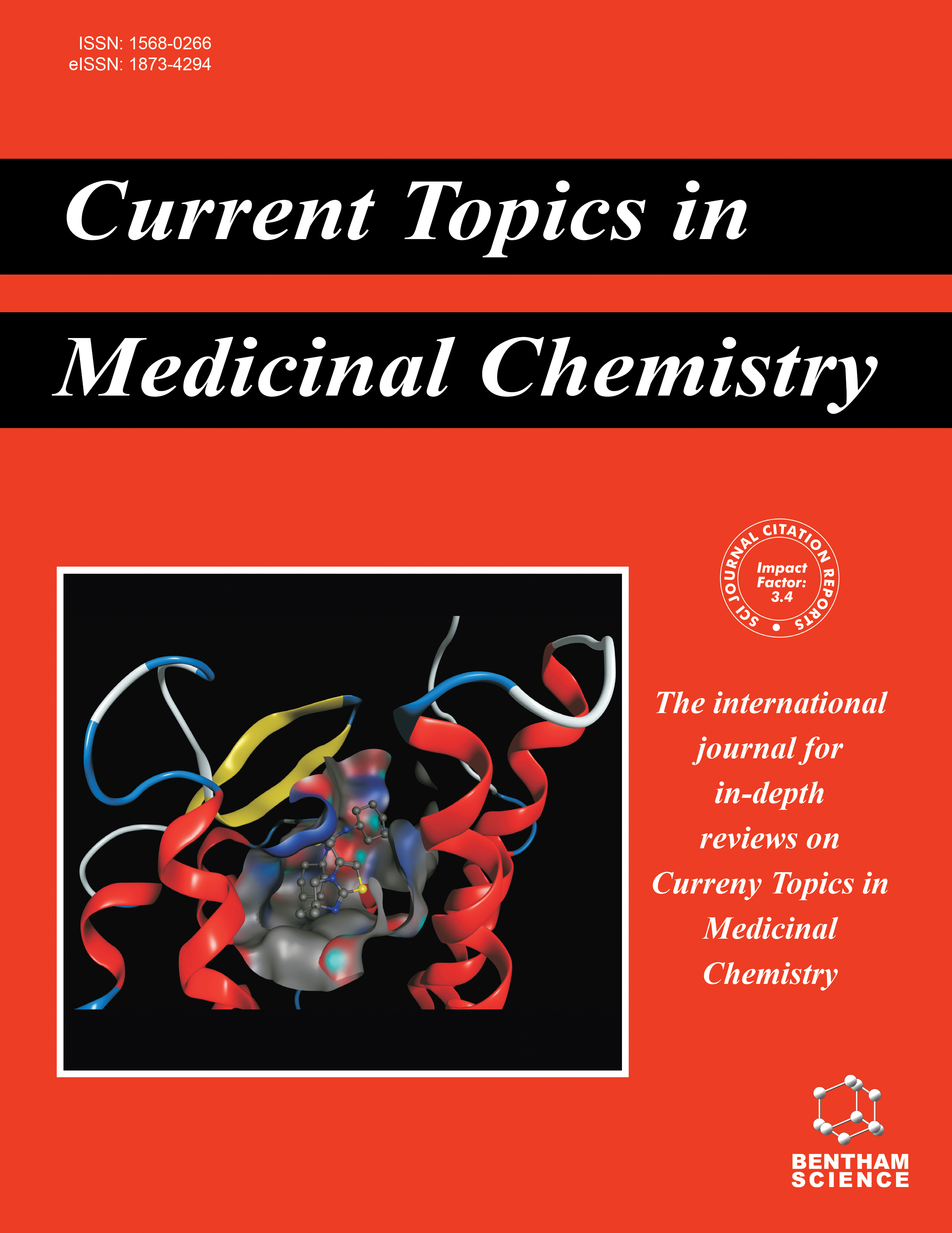Current Topics in Medicinal Chemistry - Volume 18, Issue 4, 2018
Volume 18, Issue 4, 2018
-
-
Epithelial Organotypic Cultures: A Viable Model to Address Mechanisms of Carcinogenesis by Epitheliotropic Viruses
More LessAuthors: Lara Termini and Enrique BoccardoIn vitro culture of primary or established cell lines is one of the leading techniques in many areas of basic biological research. The use of pure or highly enriched cultures of specific cell types obtained from different tissues and genetics backgrounds has greatly contributed to our current understanding of normal and pathological cellular processes. Cells in culture are easily propagated generating an almost endless source of material for experimentation. Besides, they can be manipulated to achieve gene silencing, gene overexpression and genome editing turning possible the dissection of specific gene functions and signaling pathways. However, monolayer and suspension cultures of cells do not reproduce the cell type diversity, cell-cell contacts, cell-matrix interactions and differentiation pathways typical of the three-dimensional environment of tissues and organs from where they were originated. Therefore, different experimental animal models have been developed and applied to address these and other complex issues in vivo. However, these systems are costly and time consuming. Most importantly the use of animals in scientific research poses moral and ethical concerns facing a steadily increasing opposition from different sectors of the society. Therefore, there is an urgent need for the development of alternative in vitro experimental models that accurately reproduce the events observed in vivo to reduce the use of animals. Organotypic cultures combine the flexibility of traditional culture systems with the possibility of culturing different cell types in a 3D environment that reproduces both the structure and the physiology of the parental organ. Here we present a summarized description of the use of epithelial organotypic for the study of skin physiology, human papillomavirus biology and associated tumorigenesis.
-
-
-
Current Methods Applied to Biomaterials – Characterization Approaches, Safety Assessment and Biological International Standards
More LessSafety and biocompatibility assessment of biomaterials are themes of constant concern as advanced materials enter the market as well as products manufactured by new techniques emerge. Within this context, this review provides an up-to-date approach on current methods for the characterization and safety assessment of biomaterials and biomedical devices from a physical-chemical to a biological perspective, including a description of the alternative methods in accordance with current and established international standards.
-
-
-
Validation Cytotoxicity Assay for Lipophilic Substances
More LessIt is challenging to disperse lipophilic substances in a validated cytotoxicity assay, especially for compounds with log Kow greater than or equal to 5 that may show false negative results. The purpose of this study was to explain the challenges in conducting a cytotoxicity validated test of lipophilic substances: Minthostachys setosa, Pimenta pseudocaryophyllus, and Drimysbrasiliensis essential oils. Additionally, we compared the equivalence of Neutral Red (NR) and 3- (4,5-dimethylthiazol-2-yl) -5- (3- carboxymethoxyphenyl) -2- (4-sulfophenyl) -2H -tetrazolium, inner salt (MTS) in detecting cell viability. The Hydrophile-Lipophile Balance (HLB) technique was used to evaluate the dispersion of essential oils and cytotoxicity in accordance to the guidelines of the OECD / GD 129 validated cytotoxicity assay. We compared the equivalence of vital dyes by TOST equivalence test. According to the results, we demonstrated the possibility of using other ways to disperse the lipophilic substances. Based on the HLB theory, we selected polysorbate 20 as the best solubilizing agent of the essential oils studied in D10 culture medium.
-
-
-
Alternative Methods to Animal Studies for the Evaluation of Topical/Transdermal Drug Delivery Systems
More LessIt is critical to develop an effective understanding of the interaction between the drug, delivery system and skin in order to predict and assess skin penetration and permeation. Experimental models for the assessment of topical and transdermal delivery systems must permit evaluation of these complex interactions. Whilst in the past, animal models were commonly used, recent regulatory guidelines, based on 3R principles (refinement, reduction, replacement), encourage the rational use of animals. Alternative methods have been proposed for use in the development of topical and transdermal delivery systems which are often used in combination. We will review the current state of the art in alternative methods for topical and transdermal delivery systems development, including technologies that can assist in the characterization of skin penetration/permeation studies.
-
-
-
Alternative Host Models for Testing Anti-Protozoal or Antifungal Compounds and Fungal Infection
More LessThe neglected tropical diseases (NTDs) are caused by several parasites, fungi, bacteria and viruses and affect more than one billion people in the world. The control and prevention against NTDs need implementation of alternative methods for testing new compounds against these diseases. For the implementation of alternative methods, it is necessary to apply the principles of replacement, reduction and refinement (the 3Rs) for the use of laboratory animals. Accordingly, the present review addressed a variety of alternative models to study the infections caused by protozoa and fungi. Overall, vertebrate and invertebrate models of fungal infection have been used to elucidate host-pathogen interactions. However, until now the insect model has not been used in protozoal studies as an alternative method, but there is interest in the scientific community to try new tools to screen alternative drugs to control and prevent protozoal infections.
-
Volumes & issues
-
Volume 25 (2025)
-
Volume 24 (2024)
-
Volume 23 (2023)
-
Volume 22 (2022)
-
Volume 21 (2021)
-
Volume 20 (2020)
-
Volume 19 (2019)
-
Volume 18 (2018)
-
Volume 17 (2017)
-
Volume 16 (2016)
-
Volume 15 (2015)
-
Volume 14 (2014)
-
Volume 13 (2013)
-
Volume 12 (2012)
-
Volume 11 (2011)
-
Volume 10 (2010)
-
Volume 9 (2009)
-
Volume 8 (2008)
-
Volume 7 (2007)
-
Volume 6 (2006)
-
Volume 5 (2005)
-
Volume 4 (2004)
-
Volume 3 (2003)
-
Volume 2 (2002)
-
Volume 1 (2001)
Most Read This Month


